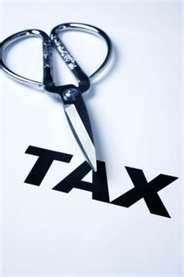 You may have read recently about a Dr Samadian who lost his case to obtain a tax deduction for the cost of traveling between his home, where his private office was located, and the private hospitals where he regularly held consultations and oversaw patient care. To rub further salt into the wound, he was also denied a deduction for the costs of travel between the NHS hospital where he was employed, and the private hospitals.
You may have read recently about a Dr Samadian who lost his case to obtain a tax deduction for the cost of traveling between his home, where his private office was located, and the private hospitals where he regularly held consultations and oversaw patient care. To rub further salt into the wound, he was also denied a deduction for the costs of travel between the NHS hospital where he was employed, and the private hospitals.
In an enquiry that had lasted the best part of 7 years, Dr Samadian, a consultant geriatrician, works in the NHS, (and like so many other typical practitioners), also has a private practice – using his own home and, principally, working at two nearby private hospitals.
HMRC challenged the doctor’s claim that 65% of his mileage was for business purposes by questioning if the travel between his home office, the NHS hospital and the private hospitals was actually business related.
Whilst Dr Samadian argued that he had a dedicated office in his home for his private practice, HMRC did not accept the home office could be a starting point for calculating private practice business mileage. Neither did journeys between NHS and private hospitals qualify.
HMRC did accept however, that Dr Samadian had an office at home and that it was used in his self-employment, but sought to distinguish between journeys that were regular or routine – like those to the private hospitals, and those that were irregular, like attending to a patient at their home, or a meeting engagement with his bank manager.
What could now turn out to be a landmark decision in the interpretation of ‘wholly and exclusively’ business expenditure, this decision may be appealed by the doctor, and we could see further developments as a consequence.
Whilst Dr Samadian argued that he had a dedicated office in his home for his private practice, HMRC did not accept the home office could be a starting point for calculating private practice business mileage. Neither did journeys between NHS and private hospitals qualify.
Lawrence Grant Partner, Alan Rajah says: Where you are self-employed you can only claim the entire cost of a business expense if it is incurred ‘wholly and exclusively for the purpose of the trade’ if the expense is of a ‘revenue’ nature, rather than a ‘capital’ purchase. Allowable costs would include, for example, hiring of an operating theatre or paying an anaesthetist.
However, if expenditure relating to your self-employment is for both private and business use, you cannot claim a deduction unless you can separate the business element.
Travel costs from home to work are not an allowable expense. However, if home is also your base of operations, the position becomes rather more complex.
If you are self-employed either as a sole trader or a partner in a practice or partnership and would like to receive tax or accountancy advice regarding the tax treatment of expenses such as mileage or travel claims, please contact Alan Rajah on 020 8861 7575 or you can drop him an email at: alan@lawrencegrant.co.uk

 It’s been quite a year so far for Lawrence Grant, Chartered Accountants as we have just relaunched our new website.
It’s been quite a year so far for Lawrence Grant, Chartered Accountants as we have just relaunched our new website.


 Posted by Lawrence Grant, Chartered Accountants
Posted by Lawrence Grant, Chartered Accountants 







